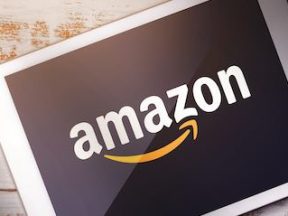The Amazon marketplace is a jungle. Savvy merchants can reach a massive audience and sell a lot of merchandise, but like a real jungle, there are reasons to be afraid.
Contributing to sellers’ fear are Amazon’s dominance in the U.S. market, advertising challenges, and Google’s generative search results. Let’s consider each.
King Amazon

In 2023 Amazon Logistics transported more packages than each UPS and FedEx, a first.
I set out to address the amazing Amazon Logistics and how it helps small and mid-sized ecommerce businesses.
The impetus was an annual Pitney Bowes report stating, “2023 is the first time in the Index history that Amazon Logistics surpasses UPS in parcel volume.”
The king of the ecommerce jungle, Amazon, transported 5.9 billion parcels in the United States in 2023, compared to 4.6 billion for UPS and 3.9 billion for FedEx.
Only the United States Postal Services (6.6 billion boxes and envelopes) had more parcel volume than Amazon Logistics. Of the big four — USPS, UPS, FedEx, and Amazon Logistics— only Amazon’s parcel volume increased in 2023, up some 800 million parcels from the prior year.
I asked a few Amazon marketplace pros about the impact on SMBs.
Two services — Amazon Logistics and Fulfillment by Amazon — streamline storage, packing, shipping, customer service, and returns, freeing sellers from the complexities of order fulfillment. Consumers love the service, with many packages — purchased on Amazon from small businesses and emerging DTC sellers — delivered the same day as ordered.
It is a strong opportunity, but not without risks. Those same experts noted that while Amazon’s dominance enables SMBs to sell and compete with massive retailers, it also makes them dependent.
“It shows how reliant sellers are on Amazon,” said Jon Elder, the founder of Black Label Advisor, a Texas-based Amazon consultancy.
“Amazon is nearing 50% of all ecommerce revenue in America, so it’s almost a monopoly now,” Elder said, adding that the dominance has allowed Amazon to raise its selling fee significantly.
“Margins are getting crushed,” Elder said.
Some in the industry have estimated that new logistics-related fees in February 2024 add about 15 cents to the cost of each item sold on the marketplace and managed via FBA. In Amazon’s defense, the increase was reportedly consistent with or even below the increases by other parcel carriers.
Nonetheless, a merchant that depends on Amazon for most of its revenue has no obvious choice but to pay.
Effective Advertising
Many marketplace sellers are reliant on more than shipping and fulfillment. Amazon Ads is vital, too.
Amazon’s advertising platform has several advantages over Meta Ads and Google Ads, such as:
- Large, high-intent audience. Depending on the study, between 50% and 57% of all shopping intent searches in America start on Amazon.
- Seamless shopping. Amazon Ads are integrated into the platform’s search results and product pages, enhancing visibility and conversions.
- First-party data. Most Amazon shoppers are logged in when they see an ad. The hubbub about tracking cookies has little impact on performance.
Amazon Ads drives the bulk of sales for many sellers. That’s the opportunity. The concern is increasing costs and a disruption of some sort.
AI Search
Some marketplace professionals believe that Google’s AI Overviews (previously called Search Generative Experience) could drive some ecommerce and D2C companies to Amazon.
AI Overviews may reduce organic search traffic to sellers’ own ecommerce sites.
Imagine a consumer seeking trail running shoes. She searches Google for “the best running shoes for Appalachian trails.” An online shoe store has a comprehensive, search-optimized article about that very topic, pairing the perfect shoe with each type of Appalachian terrain.
Before Overviews, this query could lead her to the article on the store’s website, with its branding and merchandising. The odds were good she would click a shoe in the article and add it to the cart.
Google’s AI Overview can now provide the answer from the article without a clear link to the store.
In February 2024, research firm Gartner predicted that AI would reduce overall organic search traffic by about 25% by 2026.
Meanwhile, in May 2024, Raptive, a company that places ads on creators’ and publishers’ websites, expressed concern “about the implications of AI Overviews. Our initial analysis suggests it will significantly reduce search traffic to content creators’ websites, directly impacting their ad revenue and, by extension, their livelihoods.”
Ecommerce stores with a meaningful reduction in organic search traffic could seek new sales channels such as Amazon’s marketplace, resulting in more competition.




